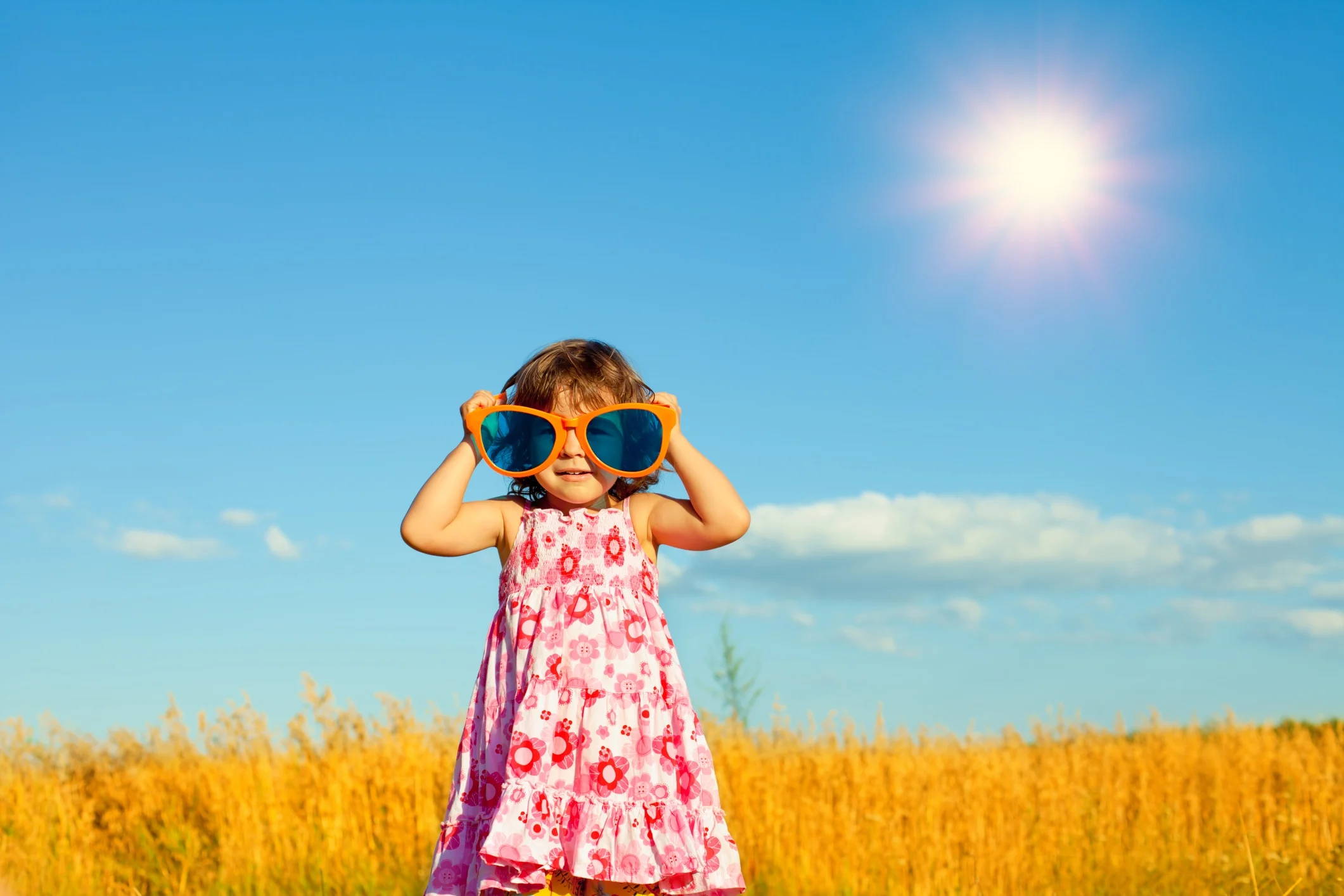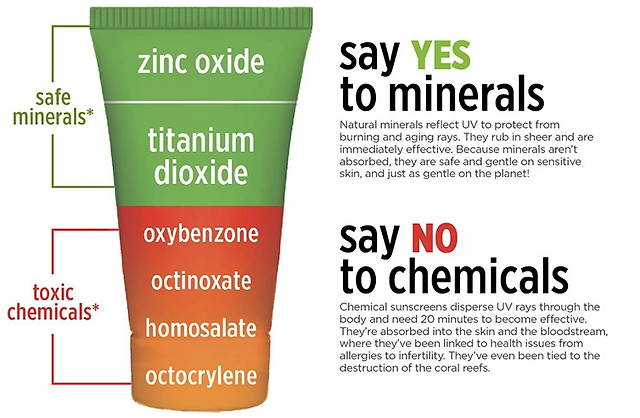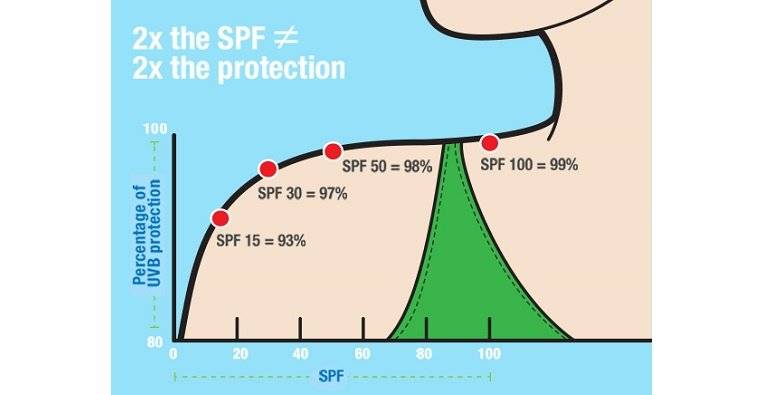By Julie Cook BA, BScOT, MScOT, Certified Lactation Educator, Clean Products Advocate for Beautycounter. Connect with her on Instagram!

Horizon Education Centers
Making sure that we take care of ourselves and our families is a huge responsibility we hold as parents and caregivers. During the summer, this includes sourcing the safest products that will offer us FULL protection from the sun’s damaging rays.
As a mother to a 10 year old boy, I remember facing the local drug store shelves and scouring online retailers trying to figure out what the safest products are. As a health care professional with 10 years of experience, a health and wellness enthusiast, and a breastfeeding person, I wanted to make sure I made the right choice. I thought I knew all there was to know, but I continue to learn more as time goes on!
Over the last three years, I have worked for a company whose mission is to get safer products into the hands of everyone, and as a woman, a consumer and a friend, I’ve taken a deeper dive into learning about the personal care and sun care industries.
What I now know is...
- What we put on our body is as important as what we eat
- Our skin is more of a sponge than a barrier
… and for that reason I would love to share some information I was glad to learn about in my research with all of you!
Here’s what we need to learn
- What to look for when you’re shopping for your SPF products.
- What to avoid when shopping for SPF products.
- What SPF levels mean and what level of protection will serve your needs.
I know we can all agree
- Avoiding a sunburn is a must with the help of a broad spectrum SPF.
- Avoiding ingredients that can negatively impact our health, fetal health and the health of our kids is a must too.
Not so fun fact: only 25% of 1,700 broad spectrum sunscreen products evaluated in a recent 2023 study by the Environmental Working Group (www.ewg.org) were deemed safe without “troublesome ingredients”.

Philly Voice
Soaking in the sun is THE ABSOLUTE BEST, but I’m sure you’ve been noticing the increase in SPF recalls in recent summers and some new research on how the ingredients in conventional sunscreens are associated with harmful health effects.
Not so fun fact: only 25% of 1,700 broad spectrum sunscreen products evaluated in a recent 2023 study by the Environmental Working Group (www.ewg.org) were deemed safe without “troublesome ingredients”.
Here are 5 Main Tips for Shopping Safer Sunscreen:
1. Buy Mineral Sunscreen
It’s safer for you and your family. It’s a barrier-style SPF that doesn’t absorb into the skin, bloodstream, and breastmilk. The American Pediatric Association recommends mineral sunscreen for children whenever possible. Thankfully, gone are the days of a “white cast” appearance! Some modern formulas are wonderfully sheer and smooth, making application a breeze:-)
2. Buy Lotions, Sticks, and Non-Aerosol Sprays
Aerosol Sprays contain flammable propellants that have been associated with health hazards and should be avoided due to risks of inhalation and ability to deliver sunscreen chemicals more easily into your lungs.
I know that spray sunscreen is often a favorite, but consider switching to a “bag on valve” air pressure-style of spray with a clean SPF product. If you are using an aerosol spray product, always avoid the face and neck, and for best practice spray into your hands to apply in that area.
The contaminant and known carcinogen Benzene has been found more prominently in aerosol and conventional popular SPFs in recent summers. This has resulted in large scale voluntary company recalls.
3. Avoid Conventional Chemical Sunscreen whenever possible
More and more research is linking conventional SPF ingredients (ie. oxybenzone and octinoxate, octisalate, homosalate and avobenzone) to harmful health outcomes. These chemicals readily absorb into the bloodstream and into breastmilk.
Chemical sunscreen ingredients have also been linked to hormone disruption in women, adolescents, children, and fetuses, impacting on overall health, development, reproductive health. Breast and Thyroid cancer have been a concern as well.
According to Breast Cancer Prevention Partners and several studies, the chemicals in conventional SPFs mimic estrogen in the body, disrupting the endocrine system, and can play a role in the development of breast cancer.
4. Consider finding shade, wearing SPF clothing, and wearing a hat to minimize SPF use
For children 6 months and younger, this is especially true!
5. Avoid fragrance in your SPF products because Fragrance often contains Phthalates
According to the Environmental Working Group, 72% of the products with the word “fragrance” or “parfum” contain this harmful category of chemicals that are associated with hormone disruption, liver and breast cancer, and fertility and development disruption among other concerns.

Interactive Health Clinic
SPF protection levels and what you need: Is SPF 50 or 100 more effective?
-
SPF 15 (at least) is suitable for daily year-round protection
-
SPF 30 is generally recommended as a great sun protective factor for spending time OUTSIDE
-
SPF 30 is 1% less protective than SPF 50 and 1.3% less effective than SPF 100
-
According to SkinCancer.org, all SPF numbers still require regular 2 hour reapplication

U.S. Dermatology Partners
The take-home message
Mineral sunscreens (especially those that are fragrance-free) are the safest option for pregnant, breastfeeding mothers, women, children, and the whole family.
30 SPF offers 97% sun protection, higher SPF, while having a higher concentration of chemical sunscreen ingredients, offers a very small increase in protection, and does not protect the skin for longer periods of time.
Here are a few awesome recommendations for great sun care products:
- Beautycounter (my favorite!)
- Dr. Dennis Gross lightweight SPF
- Hero Cosmetics Force Shield
- EltaMD SPF
- Paula's Choice Mineral Lotion with SPF
A GREAT RESOURCE
The Environmental Working Group (EWG.org) is a Fabulous Resource for finding safer products. They are an independent group of scientists that test products for safety in terms of human health and environmental impact. They have an app called “skin deep” and a database of thousands of products to search…and very helpful articles too. Look at their product safety ratings and search for those with a “Verified” label or close to it.
HELPFUL LINKS
- EWG.org
- What's wrong with high SPF
- About 75 percent of sunscreens have inferior sun protection or worrisome ingredients
- Skincancer.org - all about sunscreen
- AAD - sunscreen FAQs
- American Academy of Pediatrics Offers Tips to Prevent Sunburn
- Breast Cancer Prevention Partners - sunscreens at a glance
- Exposure to Chemicals in Cosmetics
- Teen girls see big drop in chemical exposure with switch in cosmetics
